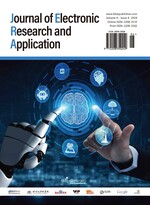Abstract
Accurately assessing the State of Charge (SOC) is paramount for optimizing battery management systems, a cornerstone for ensuring peak battery performance and safety across diverse applications, encompassing vehicle powertrains and renewable energy storage systems. Confronted with the challenges of traditional SOC estimation methods, which often struggle with accuracy and cost-effectiveness, this research endeavors to elevate the precision of SOC estimation to a new level, thereby refining battery management strategies. Leveraging the power of integrated learning techniques, the study fuses Random Forest Regressor, Gradient Boosting Regressor, and Linear Regression into a comprehensive framework that substantially enhances the accuracy and overall performance of SOC predictions. By harnessing the publicly accessible National Aeronautics and Space Administration (NASA) Battery Cycle dataset, our analysis reveals that these integrated learning approaches significantly outperform traditional methods like Coulomb counting and electrochemical models, achieving remarkable improvements in SOC estimation accuracy, error reduction, and optimization of key metrics like R2 and Adjusted R2. This pioneering work propels the development of innovative battery management systems grounded in machine learning and deepens our comprehension of how this cutting-edge technology can revolutionize battery technology.
References
Mehmet K, 2023, SoC Estimation of Lithium-Ion Batteries based on Machine Learning Techniques: A Filtered Approach. Journal of Energy Storage, 72: 108268.
Cao M, Zhang T, Wang Y, et al., 2020, A Deep Learning Method with Ensemble Learning for Capacity Estimation of Lithium-ion Battery. Global Reliability and Prognostics and Health Management (PHM-Shanghai), 2020: 1–6.
Tian H, Li A, Li X, 2021, SOC Estimation of Lithium-Ion Batteries for Electric Vehicles based on Multimode Ensemble SVR. Journal of Power Electronics, 21(9): 1365–1373.
Shen S, Sadoughi M, Li M, et al., 2020, Deep Convolutional Neural Networks with Ensemble Learning and Transfer Learning for Capacity Estimation of Lithium-Ion Batteries. Applied Energy, 260: 114296.
Gou B, Xu Y, Feng X, 2021, An Ensemble Learning-Based Data-Driven Method for Online State-of-Health Estimation of Lithium-Ion Batteries. IEEE Transactions on Transportation Electrification, 7(2): 422–436.
Wang Y, Kou P, Fan J, et al., 2022, A Novel Capacity Estimation Method for Li-Ion Battery Cell by Applying Ensemble Learning to Extremely Sparse Significant Points. IEEE Access, 10: 96427–96441.
Hannan MA, How DNT, Hossain MS, et al., 2020, SOC estimation of li-ion batteries with Learning Rate-Optimized Deep Fully Convolutional Network. IEEE Transactions on Power Electronics, 36: 7349–7353.
Li XJ, Yu D, Byg VS, et al., 2023, The Development of Machine Learning-Based Remaining Useful Life Prediction for Lithium-Ion Batteries. Journal of Energy Chemistry, 82: 103–9121.
Lv C, Zhou X, Zhong LX, et al., 2022, Machine Learning: An Advanced Platform for Materials Development and State Prediction in Lithium-Ion Batteries. Advanced Materials, 34: 2101474.
Kunapuli G, 2023, Ensemble Methods for Machine Learning. Simon and Schuster, London.
Sheykhmousa M, Mahdianpari M, Ghanbari H, et al., 2020, Support Vector Machine Versus Random Forest for Remote Sensing Image Classification: A Meta-Analysis and Systematic Review. IEEE Journal of Selected Topics in Applied Earth Observations and Remote Sensing, 13: 6308–6325.
Karch J, 2020, Improving on Adjusted R-Squared. Collabra: Psychology, 6(1): 45.
Chicco D, Warrens MJ, Jurman G, 2021, The coefficient of Determination R-Squared is More Informative than SMAPE, MAE, MAPE, MSE and RMSE in Regression Analysis Evaluation. PeerJ Computer Science, 7: e623.
Shrivastava P, Soon TK, Idris MYIB, et al., 2019, Overview of Model-Based Online State-of-Charge Estimation using Kalman Filter Family for Lithium-Ion Batteries. Renewable and Sustainable Energy Reviews, 113: 109233.
How DNT, Hannan MA, Lipu MSH, et al., 2019, State of Charge Estimation for Lithium-Ion Batteries using Model-Based and Data-Driven Methods: A Review. IEEE Access, 7: 36116–136136.
Nabipour M, Nayyeri P, Jabani H, et al., 2020, Predicting Stock Market Trends using Machine Learning and Deep Learning Algorithms via Continuous and Binary Data; A Comparative Analysis. IEEE Access, 8: 150199–150212.
